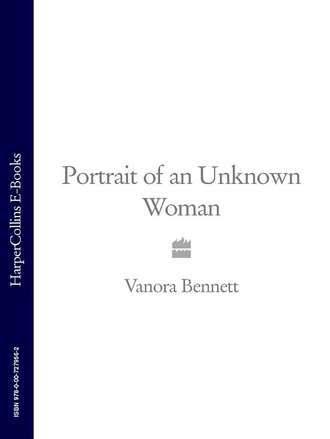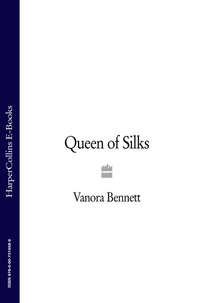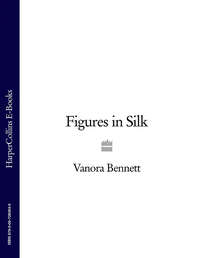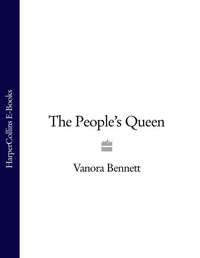
Полная версия
Portrait of an Unknown Woman
Surprised by himself, Hans Holbein paused to think. He was remembering the hundreds of sketches of faces and bodies he and Prosy had done in their father’s studio; not a money-making venture, just a technical exercise, back in the days when capturing a likeness was still considered not as an art form in itself but just a lowly artisan’s trick. And he was remembering glamorous Uncle Hans, coming back from his years in Venice full of the new humanist learning and new ideas about painting faces so realistically that you saw the inner truth in them – God in every human feature. Uncle Hans brought the southern ways home and made his fortune making portraits of the great and good from the Pope to Jakob Fugger, Ausburg’s richest merchant. He’d been the young Hans Holbein’s biggest hero. But the younger artist was also remembering the new reasons for denouncing painting. He was remembering how Prosy had stopped painting altogether a few years back, because – as he liked to say, in his irritatingly dogmatic way, thumping his fist on the tavern table – he wouldn’t provide any more ‘idolatrous’ images of the saints’ faces for the churches. What tipped Prosy over the edge was being jailed after he’d publicly abused the clergy for mass superstition, and being forced to apologise to them. Prosy wasn’t the only one to react so violently and self-destructively; artists everywhere were giving up their paintbrushes to purify the Church. That was what they kept telling people, anyway. But Hans had no time for this sort of thinking. Prosy shouldn’t have gone out on the rampage after too many hours in the tavern. He certainly shouldn’t have gone yelling at priests with his red face and his uncouth voice and his unemployed layabout friends. Prosy, who didn’t quite have the talent to get the commissions, who’d always struggled with money, and who’d always resented their father for pushing him, as the smarter younger brother, was just the type to fall back on the ‘art is idolatry’ argument now. In Hans’s opinion, all those ex-artists now denouncing art in the name of religious purity were just losers who couldn’t get commissions any more and needed excuses to explain their failure.
‘I think,’ he said slowly, searching for words, becoming fully serious as he engaged with the odd English girl’s question. ‘I think that Erasmus was right to start having his portraits painted, and engraved, and sold. I felt honoured to make likenesses of him. I don’t believe it is right to renounce the world when God has put us in it and our presence here is part of His holy design. You can see God in a human face. And, if God delights in His creation, and in the beauty and talents of the people He put on this earth, why shouldn’t we?’
He was a little embarrassed by his own unexpected eloquence. But he was strangely pleased, too, to see it rewarded when she nodded, slowly and approvingly, and thought over what he said. So he told her about getting to know Erasmus while painting his portrait. Three times in the last ten years. ‘If I look that good perhaps I should take a wife,’ Erasmus said mockingly when he saw the sycophantic first picture; but he went on commissioning more. Then she grinned and threw back her head, and he liked the spark in her eye. It made Hans Holbein think she might even understand something of how becoming so engrossed in form and colour that he didn’t notice time passing or hunger in his belly was his passion, his act of worship.
All she said, in a gentler voice, was, ‘I’d love to see more of your work one day.’
That was enough to send him rushing awkwardly to the side of the room, where his sketchbooks and copies of the printed books illustrated by his engravings were piled up, to bring her the drawings and copies he kept of the work he was most proud of. He was surprised to find his hands shaking slightly as he reached for them.
Somehow his copies of the three pictures of Magdalena came to the top of the pile. Not just the Madonna that Jakob Mayer had ordered, but also the very first picture, from the early days, when she was Venus, soft-eyed, smiling gently and gesturing alluringly out of the page; and even his revenge portrait, painted in the evenings of those bitter days when he was working on the Madonna painting. Also smiling – but with a flintier tinge to her expression – and holding out her hand again, but this time as if for money. It was the first time he’d looked at this work without being catapulted back into all the emotions of the past. Now he just felt exposed, and anxious about how Meg Giggs would react. But if she noticed any of the feelings he’d filled the three pictures with, she had the restraint not to comment. It was the Virgin of Mercy picture that she stopped at.
‘How beautifully you’ve painted her,’ she said neutrally; but it was Hans Holbein’s daring innovation in design – the humanist conceit that the Baby Jesus, rather than the Virgin, was blessing and protecting the family with his pudgy, outstretched arm – that caught her attention. ‘I like that composition,’ she added, with assurance. She admired the rich scarlets and crimsons of sashes and legs. And she praised the background which Uncle Hans had taught his nephew to paint in the Italian style, glowing with earthly life: a luminous sky-blue colour, broken by sunlit branches and oak leaves.
It was only when she reached for the next picture – his tiny copy of the mural of Christ in his tomb – that he began to feel uneasy for more down-to-earth reasons. As she looked with a mixture of fascination and horror at his depiction of a putrefying corpse in a claustrophobic box of a coffin, with its face and the spear wound in its side going blue and its dead eyes staring open, Hans Holbein suddenly remembered Kratzer’s warning about not letting himself be drawn into philosophical conversations with these people or revealing his less conventional beliefs. If anything spoke of the reformist belief that religion must be stripped back to nothing but the private relationship between Christ and man – forgetting the whole edifice of the Church which had come between them for so long – this picture, which had shocked even some of the free-thinking humanists, was it. It was so clearly that of a man, not a manifestation of God. Hastily, he put a hand on the portfolio cover, ready to shut it. But her hand was already there, holding it open. Lost in contemplation, she didn’t even notice his hand appearing next to hers. But he did, and was so startled by his own effrontery at having so nearly touched her that he pulled his own hand back as if he’d been burned.
She turned her gaze back up at him, unaware of his confusion.
‘You are a wonderful painter, Master Hans,’ she said warmly. ‘I didn’t expect you to be such a master.’
If she noticed his dampness and quickness of breath now, she would probably think it just a reaction to her compliment. He smiled awkwardly, and, noticing that her hand had moved, reached for the portfolio cover. He was almost sweating with worry, with more and more memories of what he kept in this folder stabbing back into his mind. The next work down was one of the Dance of Death engravings. And somewhere in the pile was his engraving of the front page of Luther’s New Testament (Eleutherius, the Free Man, as Brother Martin had been called while he’d still been part of the humanist brotherhood). It would most definitely be dangerous for the Mores to have any inkling that he’d had anything to do with that.
Reaching over her arm – and noticing, even in the middle of his panic attack, how long her slim fingers were, and finding that only made his heart beat faster still – he finally snapped the cover shut.
‘Oh – but can’t I see the rest?’ she asked, and dimpled up at him.
‘Another time,’ he said, forcing a genial smile back on his face and gesturing as firmly as he could towards his easel. ‘But first we must work.’
He was surprised when they were called for the midday meal. The morning had flashed by, and he’d hardly put more than a few lines of a sketch together. Hans Holbein was ushering Meg Giggs out of the door and towards the great hall when he saw Nicholas Kratzer standing in the shadows, watching him, with a sardonic grin on his bony face.
As Meg took off up the stairs with long, tomboyish strides (‘I must tidy myself up!’ she said, flashing a backwards smile), Kratzer caught up with him.
‘You’re smitten,’ Kratzer challenged.
Hans Holbein shook his head and looked down at his feet. He liked Kratzer, and thought they would almost certainly become friends while they were both living in this house. But there were things he wasn’t willing to share. There was something absurd about an artisan who’d painted house fronts having his heart turned over by a young lady so impossibly out of his reach. He didn’t want to look a fool. He didn’t want to feel a fool.
‘No,’ he said stolidly, not meeting Kratzer’s eye. ‘Just doing my job.’
I tidied out my medicine chest that night.
I couldn’t see where I’d put the pennyroyal oil.
It was the excuse I’d been waiting for to write my first letter to John Clement: asking for him to shop for a replacement in Bucklersbury Street, for old times’ sake. He’d surely send a reply with the gift. I spent a while wondering whether to mention Dame Alice’s evasiveness when I’d tried to ask her about Father, and finally decided not to. I didn’t want him to think I was doubting his faith in Father. And then I lost myself, spreading the handwritten sheets over the table, making my writing as elegant as I knew how, in a long account of the portrait-painting and of some, though not all, of Master Hans’s previous paintings, and his stories about his father, and his nerves about painting my father, and the endless brewing of ginger tea in recent days, and the three pregnancies, and the walk I’d gone on by myself to the river when I’d finished with Master Hans that morning, to look at the brisk waves on the shingle with young John and Anne Cresacre (whom I’d been more used to taking out walking back in the days when they’d spent their hours of freedom innocently climbing trees and playing tag on the lawns), trying not to notice the way their arms crept so hungrily around each other’s waist whenever my gaze was politely averted. (My willingness to avert my gaze so politely, so often, had made me their favourite chaperone in recent days.) Though I didn’t write this but hugged myself indulgently in the knowledge of it as I sealed the letter, I’d found it easy enough to look away. Encouraged by their breathlessness and flushed cheeks and sparkling eyes locked on each other, I’d felt myself becoming almost as much of a happy child as my companions. However hard I tried, I hadn’t been able to stop myself from seeing, in every boat coming towards us from London, a host of imaginary John Clements, with long legs and elegant backs hunched against the wind, each of them with sky-blue eyes fastened longingly on me as the water brought us closer and closer together.
But even while I was losing myself happily in the rose-petal commonplaces that every lover thinks are unique, I did go on wondering where the little jar of pennyroyal had gone. And, as the house settled into night, that took the edge off my joy. Gradually all the other worries that buzzed round my head like gnats, but which I’d briefly stopped noticing, became louder and more insistent too, and my vision of John Clement’s eyes, looking at me with love, faded into uneasy recollections of the man in the garden, Father writing in the New Building, and Master Hans’s artwork.
One way or another, I couldn’t sleep. My mind was racing. My body was full of unspent energy. I needed to do something. So I went downstairs. I waited till Master Nicholas had shut himself and Master Hans inside his room, and listened outside the door until I heard them unstopper the bottle Master Hans had brought. Once they began to clink glasses and laugh, I tiptoed back downstairs towards the studio. I couldn’t get the Christ corpse out of my head. I wanted to see the pictures he hadn’t wanted to show me.
It didn’t take more than a peep to show what a simpleton the man was. An engraving of the Pope – surrounded by devils, waving a Papal bull – leapt to my eyes. And right under it was an engraved frontispiece for the New Testament in German. I didn’t know the German words, but anyone could understand what ‘Das Neuw Testametrecht’ must mean. And the date was 1523, so it must be Luther’s work. The discovery was so explosive that it took me a while to notice that Master Hans’s drawings of St Peter and St Paul, on either side of the text, were extraordinarily beautiful and finely executed. They didn’t look any more the work of the devil than Will Roper had sounded during his flirtation with heresy. But that didn’t mean that Father – if he was becoming the persecutor I feared – would hold back if he found out what kind of work his painter had been doing before he appeared in Chelsea. Part of me wished that Hans Holbein and I could talk freely about what kind of God he believed in. I’d never knowingly talked to one of the new men (Will Roper in his Lutheran phase didn’t count – he was just a sweet, silly boy having a rebellion) and I wanted to hear for myself what God looked like if you believed whatever it was that the heretics believed. But another part of me was grateful that neither he nor I had tried. It was too frightening. I shut the portfolio cover as hastily as Master Hans had earlier on in the day.
After all the punishment the German merchants at the Steelyard had taken for smuggling their heretical books into London, Master Hans was playing with fire. Literally. It was obvious to me that he’d brought his past work only to show potential clients in the hope of attracting new commissions. But that proved he had no idea of the danger he would face if anyone saw these pictures. If our jolly, open-faced painter was to survive here in these watchful times, he was going to need saving from himself.
Without quite knowing why I was taking it on myself to help – except that I liked his bluff ways – I pushed the portfolio under a table and piled his sketchbooks on top of it to make it harder for anyone else to have an unauthorised snoop. I found a skull and put it on top of the heap. I draped the table with one of Master Hans’s scraps of cloth so nothing was visible. Then, wishing I could see my way upstairs without my candle, which marked me out to any observer who might want to come and ask what I was doing, I vanished upstairs.
It was only when I’d reached the solitude of my room, with my heart beating faster than usual, that I wished I’d sneaked a look at Master Hans’s portrait of Father so I could tell John about it in my letter. But it was too late now. Knowing what I knew, I wasn’t about to go back downstairs.
‘I was surprised you didn’t come out of your room last night. So much noise,’ Master Hans said. His eyes, slightly puffy after what must have been a late night with Master Nicholas, were fixed on his drawing of me. He didn’t appear to have noticed that his pictures had been stowed under the table.
‘Noise?’ I asked.
‘Your sister falling down the stairs,’ he said, and I could feel him watching me. ‘Perhaps she had too much drink. That is not good, with a baby on the way.’
‘I didn’t hear anything,’ I said, feeling a new kind of unease. I must have been too wrapped up in my letter-writing, or asleep. ‘Do you mean Elizabeth?’ She hadn’t come to breakfast.
Master Hans nodded. And suddenly I had a nasty idea about where the pennyroyal might have gone. I needed to get it back. What I hadn’t told Elizabeth was that pennyroyal didn’t just bring on abortion; it was a dangerous poison that could cause internal bleeding and would kill a mother as easily as an unborn child.
The painter must have seen a hint of my alarm and tried to offer reassurance. ‘She hurt her ankle, but I helped her up to her room. She fell as I came out of Kratzer’s room – right from the top step. But I think she will be all right.’
‘Poor Elizabeth,’ I said, trying to sound light and natural. ‘I didn’t hear a thing. I must have been fast asleep. Will you excuse me for a few minutes, Master Hans? I think I’ll just run up now and check to see if she’s all right.’
She was asleep, sprawled on her bed. She was breathing as lightly and naturally as I’d been trying to sound. I didn’t try and wake her. But I did fish around under her bed. The bottle was hidden there. She must have stolen it. I breathed out in relief when I saw it was still full. I put it back in my medicine chest, locked it carefully, and took the key back downstairs with me.
‘She’s fine, Master Hans,’ I said, as I settled myself back into my pose.
He furrowed his brow. He wasn’t ready to drop the subject. ‘I think she is worried, to be going up and down corridors in the night and falling down stairs,’ he said a little dogmatically. ‘So, I know she is married and happy to be a mother. But this is an accident that often happens to a woman who is unhappy to find she will have a child.’
For someone who was so blissfully unaware of danger to himself, I thought with new respect, he was acute enough at observing other people’s feelings.
‘Sometimes it is difficult for sisters to talk to sisters, brothers to brothers,’ he went on. Then he did his big belly laugh. ‘Now, my brother is impossible to talk reason to! But perhaps you will talk and make sure she is all right.’
‘I’ll definitely have a chat with her when she wakes up,’ I said, impressed by the kindness of his heart. ‘But she’s happy. You don’t need to worry.’
I only wished I believed it.
* * *
Mary, the cook, was back from market. Two serving boys were unpacking packages and baskets and scurrying off with them towards the kitchen. I noticed her through the glass when Master Hans and I came out of the studio; and I saw Elizabeth, coming out to take the weak sunshine, called to her side. Mary delved into the big bag she had propped on the seat beside her and pulled out two letters and a bottle. Her big raw arms pushed both of them under Elizabeth’s nose. I saw Elizabeth take both and look at them. Then I saw her pick up the bottle and give it a long stare. Then she put it back down, and, with very visible composure, took just one of the letters and walked slowly back inside. She was shielding her eyes against the sun, but she saw me as she pushed the outside door quietly shut.
‘Mary has something for you from town,’ she said, looking down.
And she continued her slow path towards the stairs.
Only when her back was turned to me, and I was already stepping blinking into the daylight to collect my letter, did it cross my mind that the last sound that had come from Elizabeth might have been a stifled sob.
‘Love letter for you, too, Miss Meg,’ Mary said hoarsely as soon as she saw me. She had a ribald sense of humour: all letters were love letters to her. ‘And a love potion to go with it, I don’t doubt.’ She cackled.
It was a jar of pennyroyal oil. Forgetting everything else, I reached for the letter that went with it and, just managing to restrain myself for long enough to put a few paces between myself and Mary as I turned towards the garden’s main avenue, tore it open. ‘My darling Meg,’ began the short note, in the spiky writing I remembered so well:
I can hardly convey my happiness: first at the joy of our meeting, with all its promise for the future, then the pleasure of receiving your note. Here is the gift you were asking for. You will see from the speed of my reply that I went straight to Bucklersbury to buy it. The first person I saw there was Mad Davy – still alive, though with precious few teeth these days, and a lot more wrinkles. As soon as he knew I was shopping for you, he sent his fondest respects and tried to sell me a piece of unicorn’s horn to bring you eternal youth. I told him you were looking enchantingly beautiful, and were the picture of youth, and he’d do better to keep it for himself. He insisted he’d only lost his teeth because he got into a brawl. I didn’t like to ask how he’d mislaid his hair.
I laughed out loud, with sunshine pouring into my soul, and turned a corner as I turned over the page, so no one’s prying eyes could see my blushes and probably foolish smiles.
It was a while before I came in, with the letter carefully tucked inside my dress. While I was still dazzled in the house’s darkness, I hid it in my room, in my medicine chest, locked away with the new jar of pennyroyal. I could hear voices in Elizabeth’s room: at least one voice, hers, raised in the querulous tones that were becoming characteristic of her.
I didn’t like to interfere. I still felt uncomfortable when I remembered William’s barely polite refusal of my first attempt to help. But he wasn’t there; he was in London; and, when I looked in the corridor, I saw her door was open. So I plucked up my courage and put my head inside. Slightly to my surprise, it was Master Hans who was with her. Sitting at a chair by the bed where she was reclining; with a little posy of snowdrops from near the front door beginning to wilt from the heat of his forgetful bear-hands. He must have picked a few flowers and trotted straight off after her. He was leaning forward and murmuring something comforting. Her eyes were red-rimmed; but she was already composed enough to smile at me with dignity.
‘Oh Meg,’ she said brightly. ‘Could you possibly find a little vase? Look what Master Hans has brought me. Aren’t they lovely?’
‘I am telling Mistress Elizabeth,’ he said, with a touch of embarrassment on his broad features, as he brazened out my gaze, ‘how to have a baby is the most beautiful thing anyone can ever hope for. A miracle in everyday life. And how lucky she is to have this joy ahead.’
He blushed slightly. Surprised at his forceful enthusiasm, I asked: ‘I didn’t know you had a family, Master Hans?’ A little unwillingly, as if he didn’t want to discuss this with me, he nodded. ‘In Basel?’ I went on, and he looked down and nodded again.
‘Tell me again – tell Meg – what it was like when you first looked at little Philip,’ Elizabeth interrupted, and even if she didn’t really want to look at me there was a hint of pretty pink back in her cheeks, and her eyes were fixing his and drawing him back into the conversation I’d interrupted. ‘When the midwife held him out to you …’
‘She said he was the spitting image of his father … and I couldn’t believe that this tiny bundle of white could be a person at all. And then I looked into his eyes, and he was staring at me so curiously, from big blue eyes, wide open and watching everything, and blowing kisses and bubbles out of his tiny mouth. And I saw his little hands were the same shape as my big German bear’s paws, ha ha!’ said Master Hans, warming up to his theme again. His eyes were sparkling with memory. ‘That’s when I knew what love was.’
‘That’s beautiful,’ Elizabeth whispered. ‘And what about your wife – did she feel the same way?’
And they were off on a long conversation about childbirth, and prayer, and the shortness of pain, and what happens to women’s hearts after they see the child they’ve carried for so many months for the first time. They didn’t need me, and I couldn’t join in – I didn’t know the feelings they were talking about. But I was pleased to see Elizabeth beginning to look reassured. Perhaps she’d just been scared, in these last days, of the heaviness of pregnancy or the pain of childbirth, or fearful of leaving her own childhood behind. Whatever it was, Master Hans must have guessed. It was unorthodox to come visiting her in her room; but he was clearly doing her good.
Quietly, I took the sagging snowdrops out of his hand. I arranged them in a little glass by Elizabeth’s bed. And I moved the letter on her bedside table to make way for the glass. As I did so, I recognised the spiky writing I’d loved for so long. John’s writing. Stifling my sudden indrawn breath, I folded it into my hand.
Murmuring an excuse, I left the room. I needn’t have bothered excusing myself. Master Hans’s head followed me for a moment, but Elizabeth hardly noticed me go, so deep was she in this earthy new kind of talk.






